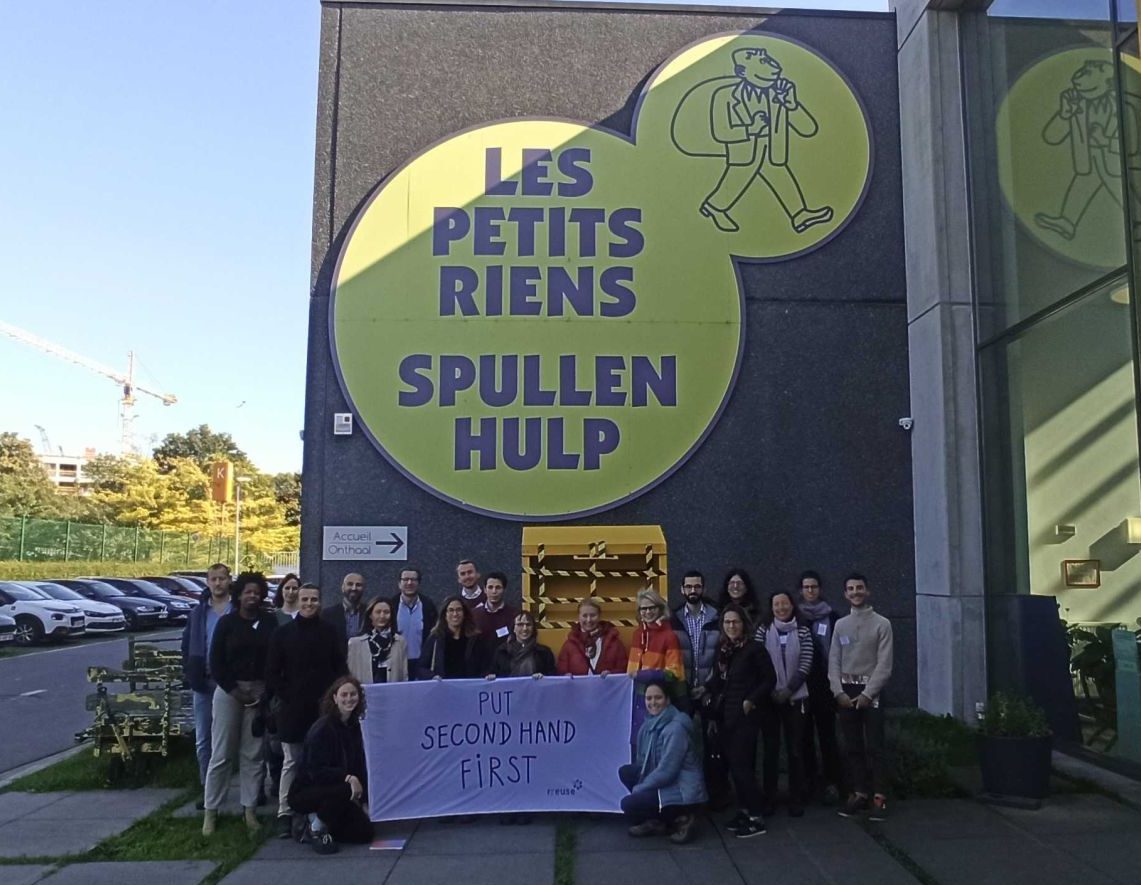EU Officials Visit two Re-use Centres in Belgium

On September 30 2022, RREUSE organised a site visit to two major Belgian sorting facilities owned by the social enterprises “Les Petits Riens” and “De Kringwinkel”. The site visit attracted about 14 representatives from the European Commission, including from the Department for Employment (DG EMPL), Environment (DG ENV), Market, Industry & SMEs (DG GROW). EU officials showed clear interest in discovering the “backstage” of the sector and learning more about the facilities, the processes, and the realities faced by social enterprises on a daily basis. RREUSE warmly thanks the Commission for actively participating in this activity and taking time out of their busy schedule to join this visit and let us know that they deeply care about our sector and our goals.
During the visit, participants gathered valuable insight into the main steps of a re-use centre such as pre-sorting, sorting, reallocating and selling of donated items. Les Petits Riens shared some interesting numbers with us during this visit: They currently have ore than 790 donation boxes for the collection of clothing and other items. They have 150 employees who work at the sorting stage of the process. Of these, 25 are „professional sorters“. They also shared with us that 85% of the items collected is re-used or recycled one way or the other. Overal, almost 3.200.000 items are sold annually second-hand by Les Petits Riens.
The second part of the visit found the EU officials at „De Kringwinkel“, where we discussed the processes and procedures followed by the social enterprise, the subsidies they receive, and why they are necessary. They shared with us that some subsidies are linked to re-use and recycling part of their work, but a large portion is linked to social employment and the work that is needed to prepare for employment people who have been distanced from the labour market. Another complicated aspect of their work is the collection of items. Often people who donate items, particularly clothing, think they are bringing clothes which are re-usable when this is not the reality. De Kringwinkel said that around 20% of the items that enter textiles donation points is not re-usable and not able to be sold in the second-hand market.
The participants had the opportunity to witness the importance of the link between economic, social and environmental dynamics. Allowing EU officials to experience the “practical” side of the sorting process and to hear about the daily life of people employed by social enterprises granted them the opportunity to better comprehend the needs and develop a deeper understanding of the realities of the sector. We are glad to know that EU experts on product policy, circular economy, social inclusion and financing of social enterprises saw their policies turned into action, which in turn, is crucial to EU policymaking.
Press contact:
Myrto Delkou, Communications Officer, myrto.delkou@rreuse.org

